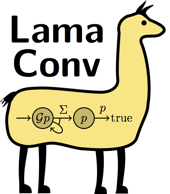Das ISP ist Teil eines Konsortiums aus Unternehmen und Hochschulen, das unter Nutzung der 5G-Technologie eine offene 5G-Infrastruktur sowie verschiedene innovative – auch portable - 5G-Komponenten entwickelt, mit deren Hilfe z. B. Noteinsatzkräfte im Katastrophenfall beim Eintreffen am Einsatzort schnell eine eigene, verlässliche Kommunikationsinfrastruktur aufbauen können, um sich möglichst umgehend ein Lagebild zu verschaffen. Denn gerade im Fall von Naturkatastrophen ist häufig die lokale Kommunikationsinfrastruktur zerstört.



